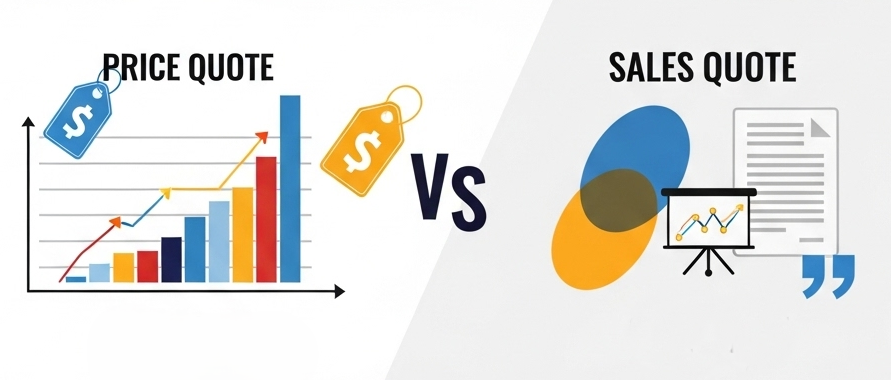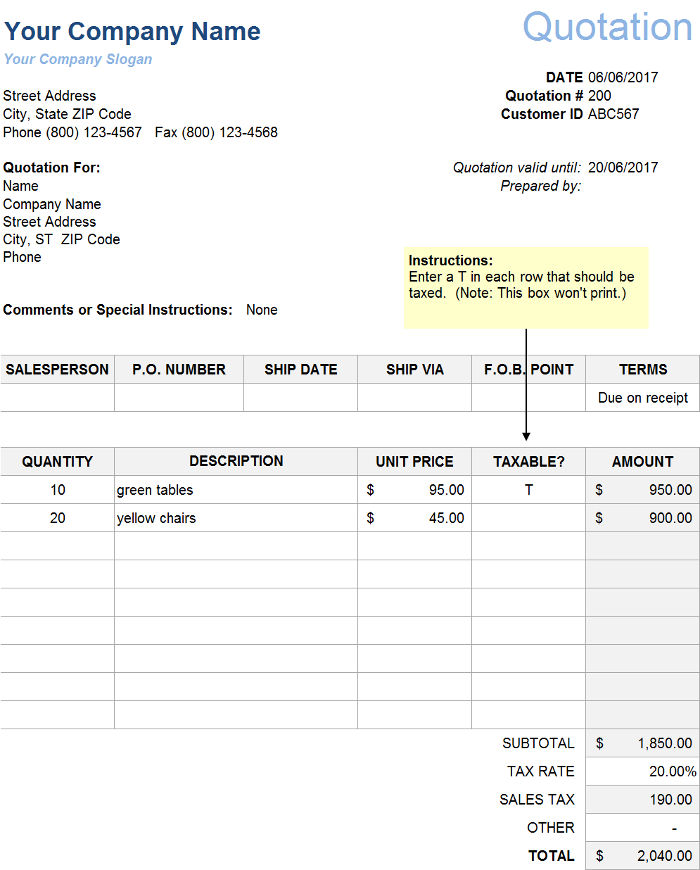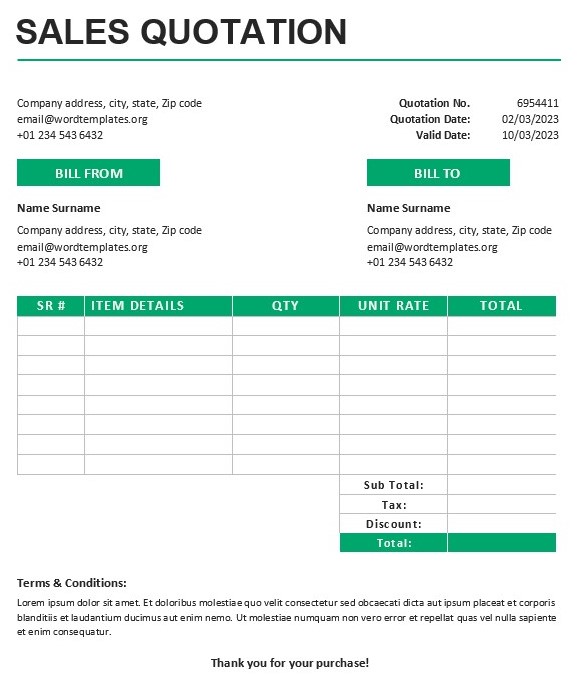
In the world of business and sales, clarity is everything—especially when it comes to communicating pricing. Two terms that are often confused are Price Quote and Sales Quote. Though they sound similar, they serve different purposes in the buying process. Understanding the distinction can help businesses communicate better and close deals more effectively.
In this blog, we’ll break down what each quote means, how they differ, and when to use them to your advantage.
What is a Price Quote?
A price quote is a document or verbal estimate that outlines the cost of a product or service. It's usually shared at the beginning of the buying process, often in response to a potential customer's inquiry.
Purpose of a Price Quote:
- To inform the customer of the approximate cost.
- To initiate discussions or comparisons.
- To set the expectation before further negotiations.

Key Components of a Price Quote:
- Product or service description
- Quantity
- Unit price
- Total estimated cost
- Taxes (if applicable)
- Validity period (optional)
Example: A customer asks for the price of 100 custom T-shirts. You send a price quote: Rs250 per T-shirt, totaling Rs25,000 + GST.
What is a Sales Quote?
A sales quote is a more formal and detailed document issued after initial discussions with a potential client. It is typically used when the buyer is close to making a purchase decision.
Purpose of a Sales Quote:
- To present a detailed and final offer.
- To act as a formal proposal before the contract or invoice.
- To initiate the next step in the sales funnel.

Key Components of a Sales Quote:
- Detailed description of product/service
- Itemized pricing and quantities
- Terms & conditions
- Delivery timelines
- Payment terms
- Quote expiration date
Example: After finalizing the design and delivery terms for the T-shirts, you send a sales quote with the final pricing, terms, and delivery details. This is now a ready-to-approve document for the customer.
Price Quote vs Sales Quote: Key Differences
| Feature | Price Quote | Sales Quote |
|---|---|---|
| Purpose | Provide basic pricing info | Make a formal sales offer |
| Stage | Early in the buying process | Later in the buying process |
| Details | Basic cost estimate | Full details including terms |
| Customization | Often generic | Tailored to specific customer |
| Legal Standing | Typically non-binding | Can be binding, depending on terms |
| Usage | Price inquiries and comparisons | Customer-ready proposal before purchase |
When to Use Each Quote Type
Use a Price Quote When:
- The customer is inquiring or exploring options.
- You’re responding to an RFI (Request for Information).
- You’re offering standard products or services with fixed rates.
Use a Sales Quote When:
- You’ve already discussed the client’s needs in detail.
- You're offering customized products/services.
- The customer is ready to make a purchase decision.
Common Mistakes to Avoid
- Confusing Price Quotes with Estimates: An estimate is rough and non-committal. A price quote should be based on actual product/service rates.
- Sending a Sales Quote Too Early: A detailed sales quote without understanding customer needs can be overwhelming or off-putting.
- Leaving Out Terms or Expiry Dates: Quotes should have clear terms and a validity period to avoid misunderstandings.
How to Create Effective Quotes (Tools & Tips)
- Use quoting software like Zoho CRM, HubSpot, or Freshsales to automate the process.
- Be clear and concise: Avoid jargon and always specify what is and isn’t included.
- Include a validity date: to create urgency.
- Use templates: to ensure consistency and professionalism.
While both price quotes and sales quotes aim to inform customers about cost, their usage and purpose differ significantly. A price quote is ideal for initiating conversations, while a sales quote is best for sealing the deal. By using the right quote at the right time, businesses can streamline communication, build trust, and close more sales.
FAQs
Q1: Is a sales quote legally binding?
A: It can be if it includes detailed terms and is accepted by the customer, but generally it precedes a formal agreement or contract.
Q2: Can a price quote become a sales quote?
A: Yes, once negotiations are complete and terms are finalized, a basic price quote can be revised into a formal sales quote.
Q3: How long should a quote be valid?
A: Typically 7 to 30 days, depending on the nature of your product, service, or market conditions.
